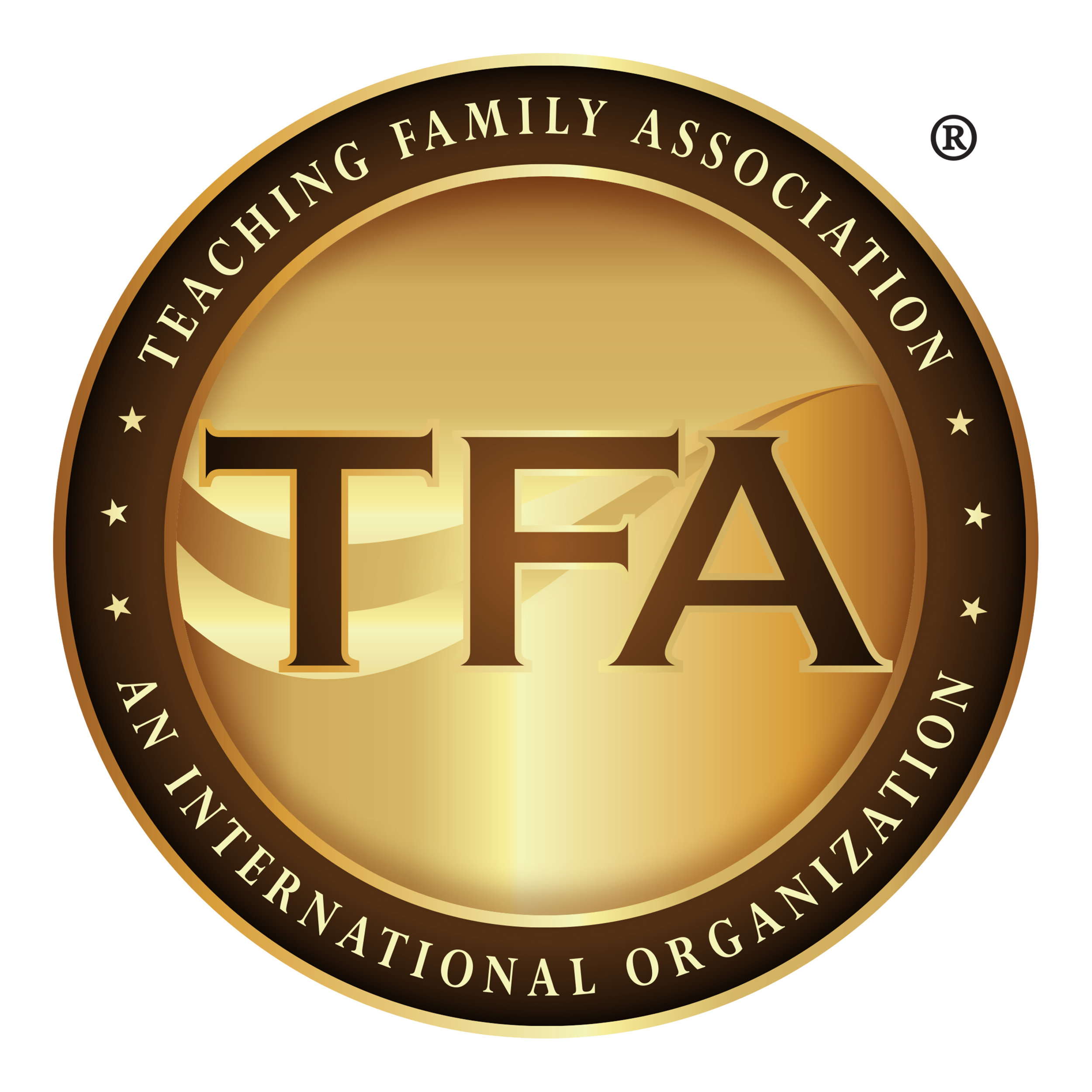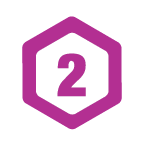“The competence, consistency, and quality the Teaching Family Model instils into every aspect of an organisation and its programs is second to none. It assures best evidence-based practice and effectiveness for all, especially those being served and those serving. Paul Mastrondardi, Executive Director - Dunlea Centre, Australia
OUR MISSION
To support and develop a worldwide network of agencies through implementation of Teaching Family Model standards to promote effective service delivery to the populations served.
CORE VALUES
•Professional. TFA emphasizes ongoing staff development with a focus on professionalizing direct care staff.
•Effective. TFA supports member agencies, through TFM accreditation to produce measurable, outcome-oriented, consumer-driven, replicable results through Model fidelity.
•Supportive. TFA promotes collaboration and sharing of expertise among member agencies to promote high quality services for all members and clients.
•Innovative. TFA develops agencies that provide unique and individualized services for their diverse populations in a full continuum of service settings through implementation of the TFM.
•inclusivity and respect for all. TFA promotes a Model that affirms the value of individuals, cultures, and populations.
WHO WE ARE
a network of providers around the world committed to best practices for persons (ages birth to senior citizens) and families served in a comprehensive continuum of environments including family homes, shelters, EMERGENCY Settings, schools, small group settings, community care, transitional living, foster homes, and other individualized settings.
How we’re different
Philosophy. Standards. Implementation Science. Fidelity. Quality. Consultation Management. Consumer Driven. 50 Years of Experience.
THERE IS A DIFFERENCE BETWEEN QUALITY AND QUALIFIED. QUALITY PROGRAMS REQUIRE IMPLEMENTATION OF EVIDENCE-BASED, RESEARCHED PRACTICES SUPPORTED BY OPERATIONALIZED STANDARDS. THIS IS THE TEACHING FAMILY MODEL.
TFA Is trademarked
our fidelity - "testing, analysis and evaluation of knowledge, skills and abilities of others to determine conformity with established accreditation standards....and certification standards...in the field of human services" - is what sets TFA programs, services, care and treatment apart.
note: only accredited and developing programs are endorsed in their use and implemenation of the teaching-family model.
For a complete list of TFA Accredited Agencies click here.
To go to Frequently Asked Questions click here.
Our Goals
SAFE, DIGNIFIED AND RESPECTFUL PRACTICES that ensure the safety, well-being, and rights of the persons served
EFFECTIVE TREATMENT that has measurable outcomes and achieves child, youth, adult, and family goals
INDIVIDUALIZED TREATMENT that meets social, emotional, cognitive, and developmental needs, and provides both voice and choice
TRAUMA-RESPONSIVE APPROACH to understanding and responding to the individual’s life experiences
QUALITY ASSURANCE SYSTEMS that are responsive to client feedback and program outcomes
Supporting High Fidelity Implementation
To support high fidelity implementation of the Model’s program components, integrated support systems create a framework in which the treatment elements can be delivered. These supports are wrapped around the practitioner to ensure that their skill set and treatment interventions are of the highest quality and effectiveness. The data collected on each of the following systems provides the organization with the ability to analyze treatment implementation and program effectiveness.
Training
Direct care practitioners are provided with an intensive curriculum of competency-based training before working with children, youth, adults, and families. Engagement and relationship development, learning theory, applied behavior analysis, skill-based teaching procedures, client rights, self-determination, trauma-informed approaches, emotional regulation, management of challenging behaviors, and clinically based treatment planning form the core intervention strategies. Practitioners develop a professional skill repertoire that empowers them to recognize and meet the therapeutic needs of each youth. Ongoing in-service training is required.
Consultation, Coaching, and Supervision
Each team of practitioners is supported by a Consultant/Supervisor/Coach. Consultation continues the training process through frequent observations and precise development of the practitioners’ skills. Through coaching, modeling, practice, and verbal and written feedback, the supervisor supports the practitioner in achieving criteria to be certified in the Model.
Evaluation and Quality Assurance
The rigorous evaluation system provides accountability both at the practitioner and program levels, with built-in feedback by the client, parents, and external and internal stakeholders. Practitioners achieve professional, international certification by meeting criteria in a comprehensive review of all program components by trained evaluators. The practitioner level review includes an on-site observation of the practitioners’ implementation of Model skills with persons served, review of program data, and a satisfaction survey of program consumers.
Facilitative Leadership
The theoretical constructs of the Model emphasize the essential role of the practitioner as the catalyst for change and healing in the lives of persons served. In accordance with these principles, agency leaders and administrators using the Teaching-Family Model have a primary goal of supporting practitioners by providing the work environment, treatment and fiscal resources needed to equip them to deliver outcome focused services. Organizational structure supports the work of the practitioner at every level.
Systems Integration
Essential to Model fidelity is the supervision and continual feedback between the four system components (training, consultation, evaluation, leadership). While all of the components fulfill independent roles, they maintain fluid responsiveness to one another. A systemic change in one area will automatically necessitate adjustments in all other components to insure comprehensive service delivery. Demonstrated integration of all Model components facilitates excellence in the organization and is required to meet criteria as an accredited Teaching-Family Model provider.
“The Teaching-Family Model Standards give us a great focus to achieve best quality of care, a framework to work with to set high bar for what we want to achieve, and holds us all to account in every part of the agency.”












